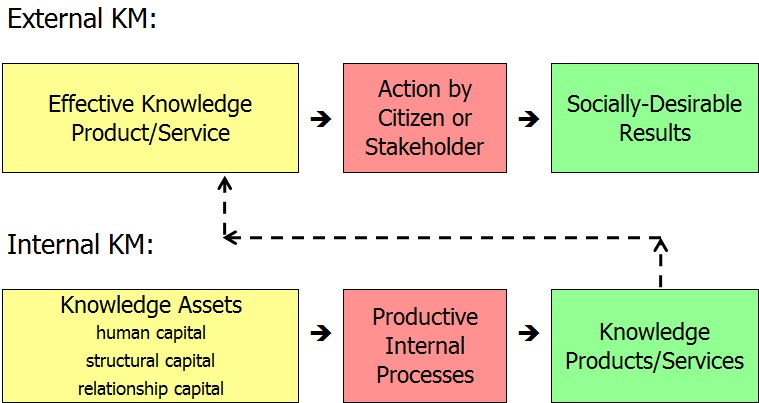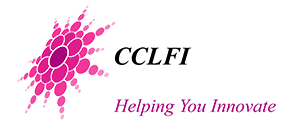The online Course on Knowledge management (KM) and Innovation for Government and Development Workers is about more effective delivery of knowledge products and services (KPS) to produce desired development results and/or to satisfy stakeholders.

It looks at how government and development institutions produce and deliver KPS that enable citizens, clients or stakeholders to act and thereby produce development results. It also reflects the fact that KM in the public and development sectors operates in two layers compared to that for the private sector (see chart).
This course consists of five lessons; each lesson is followed by a practical KM exercise over the next two weeks; the total course duration is 10 weeks. The participants are engaged in group learning as they answer and interact – with each other and together with the online Course Mentor – on discussion questions at the end of each lesson. The course is asynchronous; it will require a total of about three hours per week on the part of each participant who can access the course website at any time during the week. There is a weekly Saturday video session to clarify issues and problems, and to encourage suggestions, comments and interactions.
The topics and KM exercises under each lesson are as follows
- KM: what and why | KM in the development sector
Demand-driven KM | Demand-driven KM: whose demand?
Exercise: Identifying mission-critical knowledge assets - Sensing needs of users and stakeholders | Analyzing complaints of users and stakeholders
Exercise: Identifying better KPS to satisfy or delight stakeholders - KM tools for personal creativity and innovation | Think like Leonardo da Vinci
Exercise: Practice of a selected innovation tool - Organizational tools for innovation | Examples of social innovations
- Innovation in the public and development sectors | Analysis of three sample public and development innovations: Philippines 2000, Pamathalaan and 4P.
Exercise: Workplace practicum on innovative development model, policy, project, or process.
How to Register
The course fee is P12,000 per participant if paid before the course start date, or P15,000 if paid after the course start date. To express your interest to join this class and receive registration materials, send an email to serafintalisayon@gmail.com. CCLFI reserves the right to move back the course start date to ensure a feasible number of participants.
